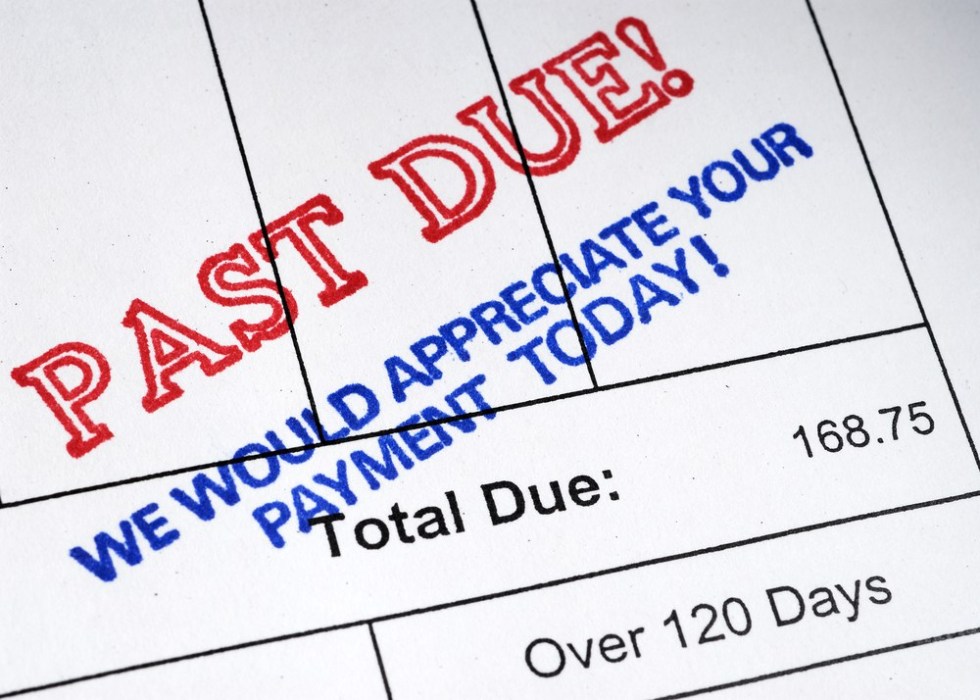How to Remove Late Payments from Your Credit Report
A single late payment can seriously damage your credit score and make it harder to qualify for loans, credit cards, or even rental housing. Worse, late payments can stay on your credit report for up to seven years, lowering your chances of getting approved or locking you into higher interest rates.

But you don’t have to wait years for the damage to go away. There are proven ways to get late payments removed from your credit report. Whether the payment was a mistake, a one-time slip, or even accurate, this guide will show you how to fix it and start rebuilding your credit fast.
How Late Payments Affect Your Credit Score
Even a single 30-day late payment can lower your credit score and stay on your report for seven years. The more recent and severe the late payment—especially if it’s 90 days or more—the bigger the hit to your score. Lenders also see every late payment when reviewing your applications, which can lead to higher interest rates or even denials.
That’s why removing them as soon as possible is so important.
6 Proven Ways to Remove Late Payments Fast
If you have a late payment dragging down your credit score, you have several options. Start with the easiest method and work your way down the list until you get results.
1. Request a Goodwill Adjustment
If you’ve usually paid on time and the late payment was a rare mistake, your creditor might be willing to help. This is known as a goodwill adjustment.
Write a goodwill letter explaining what caused the late payment. Was it a medical emergency? A job loss? A banking error? Creditors are more likely to approve your request if you’ve had a good payment history and can show the late payment was out of your control.
Send your letter to the creditor’s customer service or billing address. To improve your chances, follow up by phone or email after two weeks if you don’t receive a response.
Not every creditor will agree, but many will — especially if you’ve already caught up on missed payments.

2. Set Up an Automatic Payment Agreement
If the account is still open, ask if the creditor will remove the late payment in exchange for enrolling in automatic payments.
This strategy benefits both sides. You avoid future late payments, and the creditor gains more reliable payments going forward.
Make sure you:
- Keep enough funds in your linked account to cover the payment.
- Get the agreement in writing before signing up for autopay.
If the account is closed or already in collections, this option likely won’t be available.
3. Dispute Inaccuracies
Even accurate late payments often contain reporting errors that give you grounds for a dispute.
Check your credit reports for:
- Wrong dates of the late payment.
- Incorrect payment amounts.
- Mistakes in account status or balance.
If you spot any errors, file a dispute with the credit bureau reporting the information. You can do this online or by mail. Include any supporting documents, such as bank statements or payment confirmations.
By law, the bureau must investigate. If the creditor can’t verify the details, the late payment must be removed.
Tip: Get free copies of all three credit reports at AnnualCreditReport.com. Each bureau might show different information.
4. Negotiate a Pay-for-Delete Arrangement
While more common with collection accounts, some creditors may agree to remove a late payment if you settle the account or pay off the balance.
Contact the creditor and explain that you’re willing to pay in exchange for deleting the late mark. Stay polite and direct. You can find a sample pay-for-delete letter here.
Important:
- Not all creditors will agree, and some may be prohibited from doing so.
- Always get any agreement in writing before making a payment.
If the creditor refuses, paying the balance can still help improve your overall credit profile, even if the late payment stays.
5. Request a Re-Aging of the Account
Re-aging lets the creditor bring a delinquent account current and erase past late payments. This is often used for customers who’ve shown they can get back on track.
To qualify:
- The account must still be open.
- You’ll usually need at least three consecutive on-time payments.
- The creditor must agree to the request (they are not required to do so).
This option is more common with credit cards and retail accounts than loans or mortgages.
If approved, re-aging can immediately improve your credit report and score by removing late marks and showing the account as current.
6. Hire a Reputable Credit Repair Company
If you’re dealing with multiple late payments or don’t have time to handle disputes yourself, consider professional help.
A reputable credit repair company can:
- Review your credit reports for errors or disputable items.
- Handle communication with creditors and credit bureaus.
- Guide you on additional steps to improve your credit.
Look for companies with:
- Transparent pricing.
- Strong customer reviews.
- No large upfront fees or “guarantees” of results.
Professional help can be especially useful if you’re preparing to apply for a mortgage, auto loan, or other major credit product where every point on your score counts.
What If Your Creditor Won’t Remove the Late Payment?
If you’ve tried goodwill requests, disputes, and negotiations without success, you still have options. A single late payment doesn’t have to ruin your credit forever.
- Keep Making On-Time Payments: Your most recent payment history has the biggest impact on your credit score. The more on-time payments you make going forward, the less weight older late payments will carry.
- Pay Down Balances: High credit card balances can make the effects of a late payment worse. Reducing your credit utilization rate can help offset the score damage.
- Add Positive Accounts: If you don’t have many open accounts, consider adding a secured credit card or becoming an authorized user on someone else’s well-managed account. More positive data can help dilute the impact of the late payment.
- Be Patient: Late payments hurt your credit score most in the first 12 to 24 months. Over time, the impact lessens—especially if you keep the rest of your credit history clean. Even if the late payment stays on your report for seven years, its effect will steadily decline.
How to Prevent Late Payments in the Future
Once you’ve handled any existing late payments, it’s important to avoid new ones. Here are some simple ways to stay on track:
- Set Up Payment Reminders or Calendar Alerts: Use your phone’s calendar, a budgeting app, or email reminders to alert you a few days before each bill is due.
- Enroll in Autopay When Possible: For regular bills and credit accounts, autopay can prevent missed due dates. Just be sure to keep your linked account funded.
- Keep a Buffer in Your Checking Account: Maintain a cushion in your checking account to cover unexpected charges or changes in payment amounts.
- Review Accounts Monthly: Check all accounts each month for potential issues, like billing errors or fraudulent charges, that could lead to missed payments.
- Consider Multiple Reminders: If you’re managing several accounts, setting up both digital and physical reminders—like sticky notes or a bill calendar—can help.
Final Thoughts
A late payment can feel like a major setback, but it doesn’t have to hold your credit hostage for years. By taking the right steps—whether that’s asking for a goodwill adjustment, disputing errors, or negotiating with your creditor—you can often get late payments removed or at least reduce their impact.
Even if removal isn’t possible, consistent on-time payments and smart credit habits will help your score recover over time. Stay proactive, monitor your reports regularly, and consider professional help if the process feels overwhelming.
Your credit score reflects your overall habits, not just one mistake. What you do today can make a big difference in how lenders see you tomorrow.



